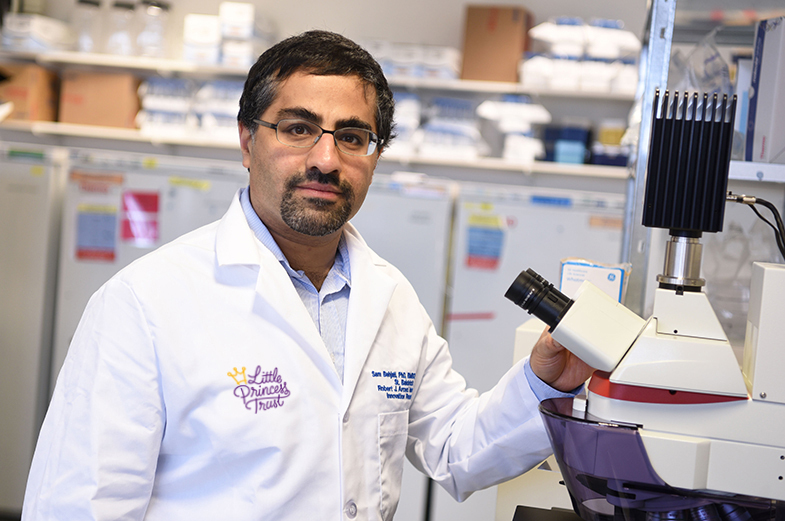Little Princess Trust News
Marking World Cancer Day by focusing on our research

Study helps to predict how childhood kidney cancers develop
One of the key goals of World Cancer Day is to rewrite the future of cancer care. As we join others across the globe in marking this special day, we look at the results of a research project funded by The Little Princess Trust that is hoping to improve the lives of young people diagnosed with a Wilms tumour.
Genetically tailored treatment plans for children with a type of kidney cancer could help provide the most effective care while minimising side effects as much as possible.
Researchers from the Wellcome Sanger Institute, Cambridge University Hospitals, Great Ormond Street Hospital, and their collaborators, have mapped the genetic differences across children with a Wilms tumour.
In about 30 per cent of children with Wilms Tumour, there is an inherited genetic change that increases the risk of developing this cancer.
This study, supported by funding from The Little Princess Trust, suggests that inherited genetic changes predetermine how these tumours develop, how much they respond to certain treatments, and whether the individual affected is at higher risk of secondary cancers later in life.
The team indicates that different genetic predispositions give rise to different tumour development pathways and kidney structures, and have identified those that restrict the growth of tumours. They also found that Wilms Tumours develop differently in those without genetic predispositions.

Their findings, published in Cancer Discovery, suggest that tailoring treatment and screening programmes to a child’s genetic makeup could ensure that everyone is receiving the most effective care.
In the future, this research could help develop new therapies for certain genetic changes and identify children who may need less invasive surgery.
Professor Sam Behjati, co-senior author from the Wellcome Sanger Institute and Cambridge University Hospitals, said: “We currently treat all children with a predisposition the same, meaning that some children get too much and others too little treatment.
“Our findings indicate that we may be able to personalise treatment on the basis of genetic information.
“Moreover, since we now know the precise sequence of genetic changes that lead from predisposition to cancer, we may be able to screen for tumours more effectively and even begin to entertain the possibility of prevention.”
Latest Posts
New book reveals reality of a child’s cancer diagnosis
How can we help children and young people with bone cancer?
Charities join forces for Teenage and Young Adult Cancer Awareness Month
Natalie Dormer donates her locks to help children with hair loss
Artist helps us support our 20th anniversary



